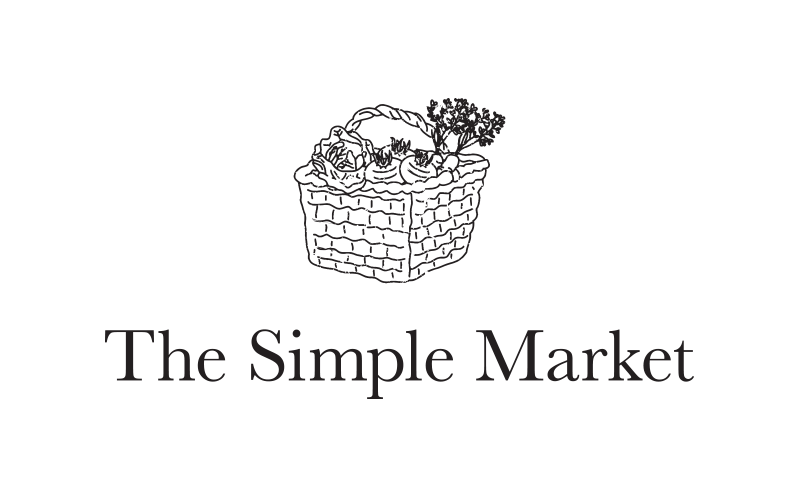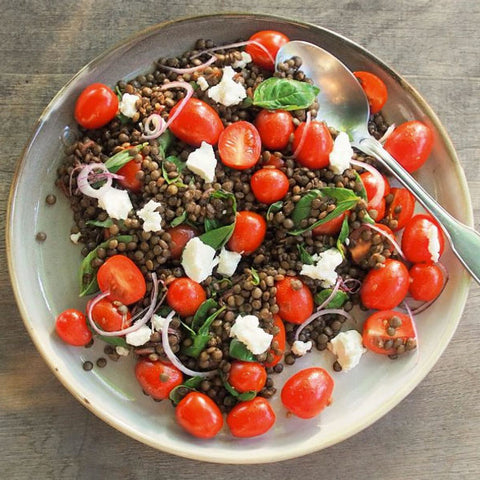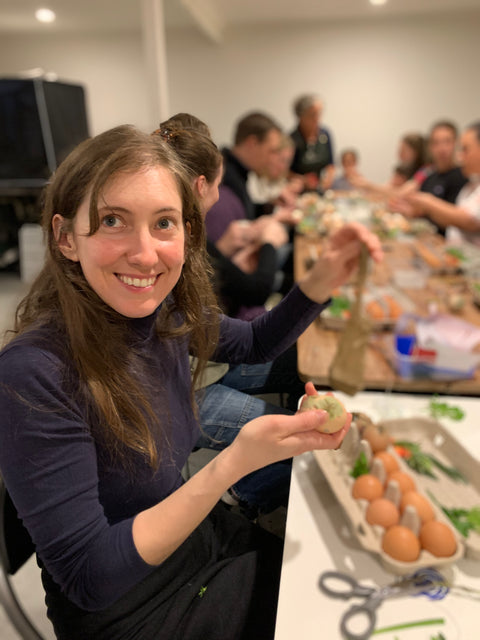We interviewed one of our long term members Brad Joseph about his experience when it comes to beekeeping a few years ago, what's involved, and some questions we've wanted to know more about for some time. A big ethical question we have is, is honey sustainable?
Personally, our conclusion from the interview was that honey seems to involve less death than perhaps cane sugar since the realities are if conventional cane sugar is used then the synthetic fertilisers, herbicides & pesticide runoff can cause more damage to local waterways (fish, birds, frogs and insects in general). If organic methods are used for cane sugar, then the realities are there is still death involved in the mowing down of cane sugar crops (birds, nests, field mice etc)...
This leads us to our members voting...
By having honey in the store from beekeepers who take pride in what they do and for the right reasons, it allowed guests who perhaps are using mass produced supermarket honey to have a better option.
Should The Simple Market carry locally sourced (i.e. KI or Flinders Ranges) small batch honey?
Yes/No - 100% of votes came back as a yes, we should have honey.
I grew up on Kangaroo Island and local honey was always in the house. The first time I tried a large company’s commercial honey “you know the kind in a squeezy bottle” I learnt a valuable lesson, that not all foods are produced equally. What I love about producing honey is when people who have only ever tried the squeezy bottle honey, try my honey. The look of disbelief that what they thought honey tasted like, was wrong.
2. How did you first get into managing beehives & why?
I have been a gardener since I left home 13 years ago with varying success. Every year I gardened I noticed that the pollination in my garden was not being achieved due to a lack of pollinating insects especially bees. I resorted to pollinating with a paint brush. When I purchased my own home, I decided to have a good garden I would need to take the bee situation into my own hands and I purchased my first bee hive. I now have no problem with pollination.
3. Can you explain the production of local small batch honey vs. mass produced honey?
When I’m beekeeping I always try to do what is best for the bees. This is not always the case with larger producers who often feed the bees sugar instead of leaving enough honey for the bees over winter. My honey is not heated during extraction, whereas most large extractors heat the honey. I also don’t use plastic frames or foundations, instead I used wooden frames and beeswax foundations. This reduces waste as these need to be replaced yearly.
Overheating and poor storage can lead toxic compounds which are not naturally present in honey (Zhao et al., 2018). These compounds can be detrimental to human health and have been found to be mutagenic, carcinogenic, and cytotoxic if taken in high doses (Farag et al., 2020).
4. Often it is said that honey is theft of the bees, but then we also hear that there is excess honey, what is your experience?
Ligurian honey bees make excess honey. This is why they are selected by beekeepers. These bees will make 3 times as much honey as they need for winter. Bees also like fresh wax as it reduces the chance of getting diseases. Removing honey frames from the hive allows the replacement of older frames with new ones, keeping the hive clean and healthy. Bees will also keep making honey even if the hive is full, creating other issues.
5. Do many bees die in the process of taking the honey and how long is a bee's life?
Worker bees live as larvae for 21 days, followed by 30-50 days of adulthood during the hotter months. Bees born before winter may live considerably longer. Drones (male bees) are born with one purpose – to mate with queens. They die immediately after this. Queen bees live for 3-6 years.
Unfortunately, some bees may die during hive inspections. This is almost unavoidable as there are up to 80,000 bees in a hive at once. However, entering the hives for maintenance and disease inspection is required by law and can help to reduce disease and bee death in the long run. A good beekeeper wants to minimise bee death at all times. This creates a stronger hive which creates more honey and has less problems, requiring less hive inspections.
6. Do you use antibiotics with your bees?
No. I use organic principles with my beekeeping. This involves proper maintenance of the hives to reduce the chance of disease outbreaks.
7. Do you artificially inseminate the bees?
No. I get my queens from a breeder who mates his queens with drones from strong hives. This encourages genetic diversity.
8. Do you kill the queen bee & replace it like in standard industry practices?
Yes, I do. This may seem cruel but the hive will either kill a weak queen or the weak queen will swarm with a small amount of the bees from the hive. All the bees in the swarm will die as the queen cannot produce enough larvae to support a new hive. Having a strong queen also reduces the chance of getting diseases in the hive.
9. Obviously honey is not classified as vegan as it is an animal product. Is more ethical than cane sugar for example?
I can’t speak for every primary producer as there are good and bad in every industry. The production of honey requires no artificial chemicals, fertilisers or intensive use of large machinery. Bees also help the production of many plant products that we love to eat. It is in the beekeeper’s best interests to work with nature as bees are sensitive to artificial chemicals and the hives become weak when exposed to monocropping for extended periods of time. So beekeeping can be a very sustainable practice when done well.
10. What are the health benefits to honey?
Honey has been used for thousands of years. Hives were even sent down the Nile on boats to help with the pollination of ancient Egyptian crops. Honey has slightly different properties depending on the vegetation that is available for the bees to feed on. It has been shown to have prebiotic properties (Aly et al., 2017) but is also antimicrobial, antifungal and antibacterial (Bobis et al., 2020). This makes it great for balancing the gut microbiota (Cianciosi et al., 2018). Honey is also good for wound healing as it reduces scar formation, is antimicrobial and encourages tissue regeneration (Cianciosi et al., 2018).
Some studies on animals have found honey to have an anticancer effect mainly due to its antioxidant capabilities but this has not yet been tested in humans (Cianciosi et al., 2018). Honey has an antidiabetic effect due to its ability to regulate blood sugar (Erejuwa, Sulaiman & Wahab, 2011). Honey also has cardioprotective effects (Idrus et al., 2020). It is commonly used as a cough sedative and has also been shown to reduce hay fever symptoms (Asha’ari, Ahmad, Jihan, Che & Leman, 2013). Honey can have a beneficial effect for athletes by reducing oxidative stress, improving performance (Ahmad et al., 2017).
12. Should we setup a bee hive in The Simple Market garden and why?
Yes. With proper beekeeping techniques and the right environment bees are a good addition to any garden. Bee hives often do well in suburban areas due to the wide variety of flowering plants and low rates of farming chemicals. Bees are a vital part of the ecosystem and having a locally managed bee hive provides a talking point for bee education with the community.
13. What is it like to own a beehive?
I’ve had bee hives in my small backyard for about 5 years now. The initial set up (bees, hive boxes, bee suit etc.) cost more than I expected, but I loved having bees. I still go out most mornings to see what my bees are doing. The bees I own are calm and not aggressive. However, having more bees increases the chance of getting stung. I have only been stung a few times in five years and I am always out in the garden barefoot. Bees have routines and one thing that the bees always do is come out of the hive in great numbers at around 3pm for a toilet break. Having more bees in the yard means that you are more likely to have a bee land on you. The bee is only having a break and if left alone they will just fly away when they are ready. One year ago, I put a hive at my friend Tim’s place as his daughter was interested in bees. They didn’t know where to start or if having bees was right for them, so this allowed them to trial a hive. Each time I go over to inspect the hive (4-8 times a year) I teach them about the bees and what I am doing to keep the bees happy and producing lots of honey. I am now planning to take this idea further by placing hives in backyards and on properties to grow the bee community.
Reference
Ahmad, N. S., Abdul Aziz, A., Kong, K. W., Hamid, M. S. A., Cheong, J. P. G., & Hamzah, S. H. (2017). Dose-Response Effect of Tualang Honey on Postprandial Antioxidant Activity and Oxidative Stress in Female Athletes: A Pilot Study. Journal of Alternative & Complementary Medicine, 23(12), 989–995. https://doi-org.ezproxy.
Almasaudi, S. B., Abbas, A. T., Al-Hindi, R. R., El-Shitany, N. A., Abdel-dayem, U. A., Ali, S. S., Saleh, R. M., Jaouni, S. K. A., Kamal, M. A., & Harakeh, S. M. (2017). Manuka Honey Exerts Antioxidant and Anti-Inflammatory Activities That Promote Healing of Acetic Acid-Induced Gastric Ulcer in Rats. Evidence - Based Complementary and Alternative Medicine. https://doi-org.ezproxy.
Aly, H., Said, R. N., Wali, I. E., Elwakkad, A., Soliman, Y., Awad, A. R., Shawky, M. A., Alam, M. S. A., & Mohamed, M. A. (2017). Medically graded honey supplementation formula to preterm infants as a prebiotic: a randomized controlled trial. Journal of Pediatric Gastroenterology and Nutrition, 64(6), 966–970. https://doi-org.ezproxy.
Asha’ari, Z. A., Ahmad, M. Z., Jihan, W. S., Che, C. M., & Leman, I. (2013). Ingestion of honey improves the symptoms of allergic rhinitis: evidence from a randomized placebo-controlled trial in the East coast of Peninsular Malaysia. Annals of Saudi Medicine, 33(5), 469–475. https://doi-org.ezproxy.
Bobis, O., Moise, A. R., Ballesteros, I., Reyes, E. S., Durán, S. S., Sánchez-Sánchez, J., Cruz-Quintana, S., Giampieri, F., Battino, M., & Alvarez-Suarez, J. M. (2020). Eucalyptus honey: Quality parameters, chemical composition and health-promoting properties. Food Chemistry, 325. https://doi-org.ezproxy.
Cianciosi, D., Forbes-Hernández, T. Y., Afrin, S., Gasparrini, M., Reboredo-Rodriguez, P., Manna, P. P., Zhang, J., Bravo Lamas, L., Martínez Flórez, S., Agudo Toyos, P., Quiles, J. L., Giampieri, F., & Battino, M. (2018). Phenolic Compounds in Honey and Their Associated Health Benefits: A Review. Molecules (Basel, Switzerland), 23(9). https://doi-org.ezproxy.
Erejuwa, O. O., Sulaiman, S. A., & Wahab, M. S. A. (2011). Oligosaccharides might contribute to the antidiabetic effect of honey: a review of the literature. Molecules (Basel, Switzerland), 17(1), 248–266. https://doi-org.ezproxy.
Farag, M. R., Alagawany, M., Bin-Jumah, M., Othman, S. I., Khafaga, A. F., Shaheen, H. M., Samak, D., Shehata, A. M., Allam, A. A., & Abd El-Hack, M. E. (2020). The Toxicological Aspects of the Heat-Borne Toxicant 5-Hydroxymethylfurfural in Animals: A Review. Molecules (Basel, Switzerland), 25(8). https://doi-org.ezproxy.
Idrus, R. B. J., Sainik, n., Nordin, A., Saim, A. B., & Sulaiman, N., (2020). Cardioprotective effects of honey and its constituent: An evidence-based review of laboratory studies and clinical trials. International Journal of Environmental Research and Public Health, 17(3613), 3613. https://doi-org.ezproxy.
Zhao, H., Cheng, N., Zhang, Y., Sun, Z., Zhou, W., Wang, Y., & Cao, W. (2018). The effects of different thermal treatments on amino acid contents and chemometric-based identification of overheated honey. LWT, 96, 133–139. https://doi-org.ezproxy.




Comments (0)
There are no comments for this article. Be the first one to leave a message!